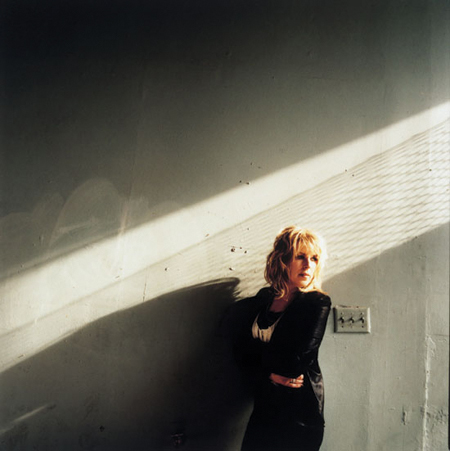Videos by American Songwriter
After that, Williams moved to Nashville for a time, in part to see if she might get lucky again. She had a few more songs covered – including two by Emmylou Harris – but a mainstream country songwriting career just didn’t seem to be in the cards.
Recalls Williams, “My manager at the time, Frank Callari, said, ‘Well, your songs are too personal. People just don’t know what to do with them.’ …And then the only other ones I had, the only other brave person was Patty Loveless when she did ‘The Night’s Too Long.’ That just didn’t go anywhere, partly because of the label, her people. They were so conservative.”
A lot’s changed in the past couple of decades about how Williams views songwriting and the business, and how the business views her and her songwriting. She’s come to occupy such an important place in the world of contemporary American roots music – she’s the first one that many rising and aspiring Americana songwriters compare themselves to, and deservedly so – that any spooky, South-conjuring T.V. series worth its salt could hardly ignore her catalog.
Her songwriting process is still personal and from the gut, but it seems she’s holding the finished products more loosely, entertaining different possibilities for where her songs might belong and saying things about all of it that you might not have caught her saying in earlier eras of her career.
Things like this:
“To me, who you write the song for is really neither here nor there anyway. By the time the song gets out and I’m done with it, it kind of goes off into the universe. Whoever wants to do whatever with it is fine with me.”
She laughs, acknowledging this isn’t entirely true. “Well, I wouldn’t want to have it in certain commercials.”
It’s easier to be laidback about these things once you’ve established certain facts: that there is, unmistakably, such a thing as a Lucinda Williams song and that a good many people are drawn to them. It could be argued that she’s at the height of both her career and her satisfaction with it; she’s also got her war stories about how she reached this point, how she’s kept at this singer-songwriter thing long enough to see a lot of her artistic instincts proven right.
There’s a particular war story she’s circled back to fairly often these past several years. Essence, the album that followed Car Wheels, represents a moment when she drew a line in the sand for critics who preferred she stick to the sort of writing she’d been doing. With its narratives grounded in the southern towns of her childhood and its full-bodied alt-country sound, Car Wheels won a Grammy for Best Contemporary Folk Album (there wasn’t yet an Americana category) and brought a heap of new listeners her way; even so, after that she pointedly reshaped her songwriting with a lyrically lean, groove-driven and decidedly different approach.
“It was taking me a long time to come up with a bunch of new songs,” Williams says, “because it was like that sophomore jinx thing, it was the album following Car Wheels and I was terrified. I thought, ‘I’ve got to write a bunch of new songs like “Car Wheels On A Gravel Road” and “Lake Charles” and all these really narrative songs. I’m not necessarily just going to come up with those songs again, or songs like that.’ I just kind of went through this thing where I started writing and kind of allowed myself to open up.”
And a decade later, she seems anything but closed.
Blessed, Williams’ tenth studio album, is both a sure-handed distillation of some of her most salient songwriting impulses and something of an expansion of her range. It’s not especially dark or happy (2008’s Little Honey was pegged as her “happy” album by many, in part because it opened with a rocking love song), though it does contain three songs that deal with death – one of those about a suicide – and a pair of what she describes as “sweet love songs,” the one that made it onto True Blood and a poetic ballad called, literally, “Sweet Love”.











Leave a Reply
Only members can comment. Become a member. Already a member? Log in.